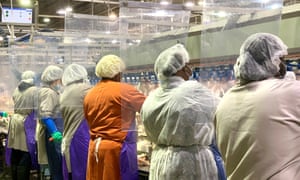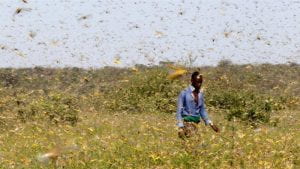I’m taking the liberty to focus on the food system and farm workers in Washington State. COVID-19 has served to peel back the layers of an incredibly unjust system. Farm workers, who are largely foreign and undocumented, have now been deemed ‘essential’ employees yet are not afforded basic safety measures. Currently, labor advocacy groups Familias Unidas por la Justicia and the United Farm Workers of America are filing a lawsuit against Washington State’s Health and Labor departments demanding regulated support for these farm workers who are too scared to speak for themselves because doing so could result in their H2-A visas being revoked and/or their information being given to ICE. Washington Health was reported issuing guidance that temporary worker housing facilities with a single room “should assign sick occupants to one side and occupants without symptoms to the opposite side.”
Speaking of housing, simply getting a roof over their heads is a challenge for many foreign farm workers. Not all farms are required to provide housing for their employees depending on the visas issued, and as Benton City has demonstrated, many local residents in farming areas push back hard against supplying farmworker housing. Residents of Benton City were recorded stating that they did not want Benton City to become like Mabton, a mostly Latino community. That was during complaints directed to the US Department of Justice in 2002. To this day residents are fighting against farm worker housing.
Perhaps one of the most telling cases of foreign farm worker discrimination was during the infamous 2018 Sumas Berry Farm case. The farm manager was quoted saying about the foreign farm workers: “They came here to suffer,” and that they were expected to work every day of the week “unless they were on their deathbed.” Despite H2-A visas not having a production quota in WA State, workers on this farm were expected to harvest two boxes of berries every hour or face deportation and paying their own way home. The conditions that brought on the allegations w
ere 12 hour shifts in hot, wildfire smokey conditions that led to severe heat stress, poor quality or portioned food, not enough water, expired visas that had yet to be renewed, and the death of a coworker, suspected from aforementioned conditions, which caused 70 employees to go on a one day strike and subsequently get fired. The farm was expected to pay a lawsuit settlement of $149,800, but a judge later cut that settlement cost in half.
These are just three examples of severe injustice and racism faced by foreign farm workers in the US food system, but it’s a systemic problem that infects every part of the country. Until we can strictly enforce basic human rights and regulations in the farming system, these injustices won’t stop. It’s one of the real costs of cheap food.
















